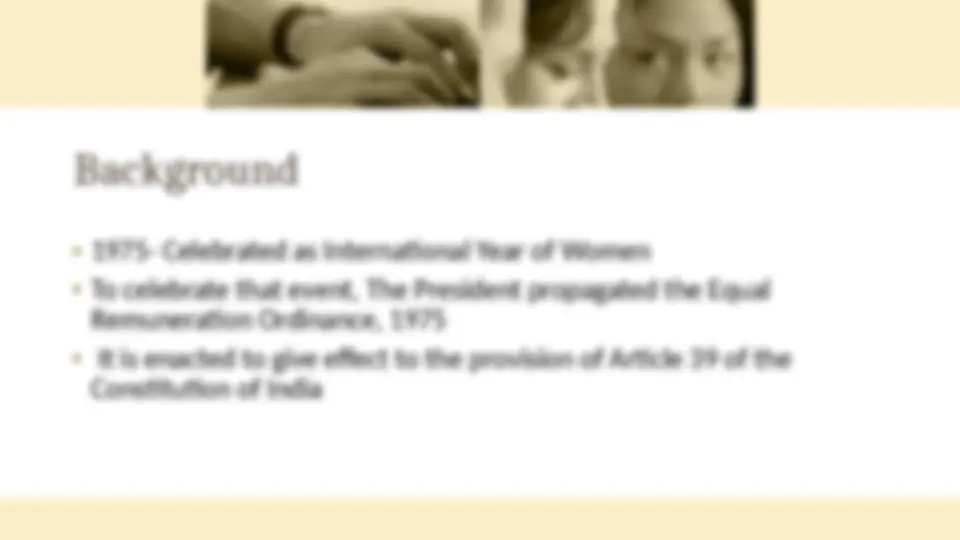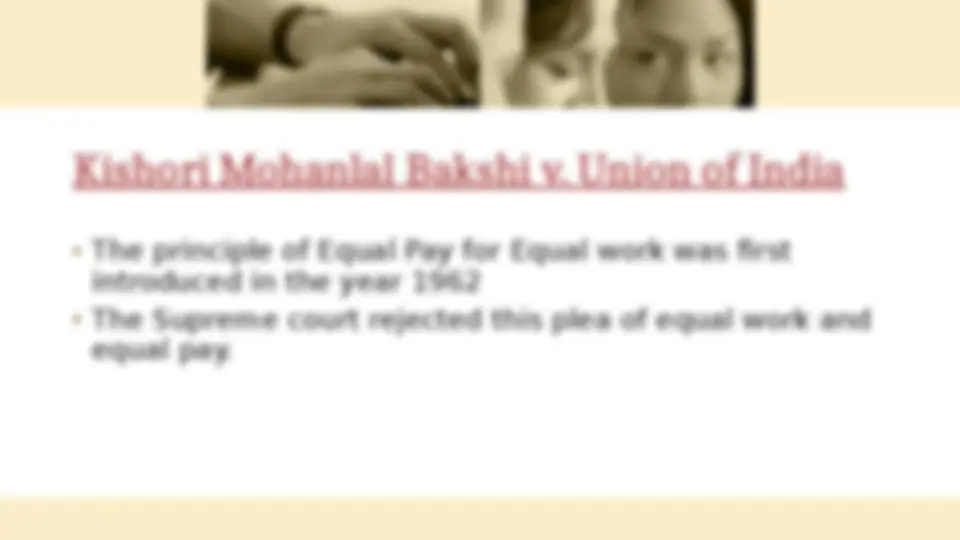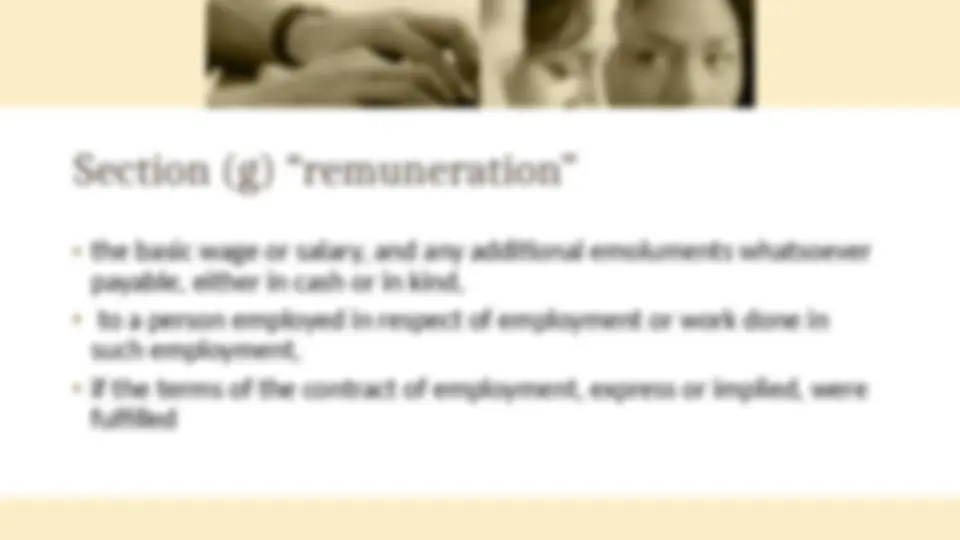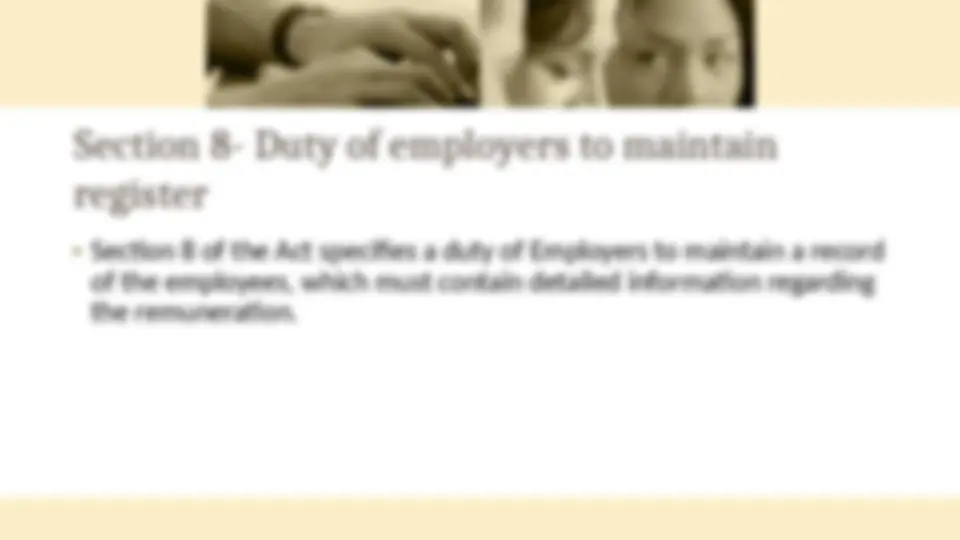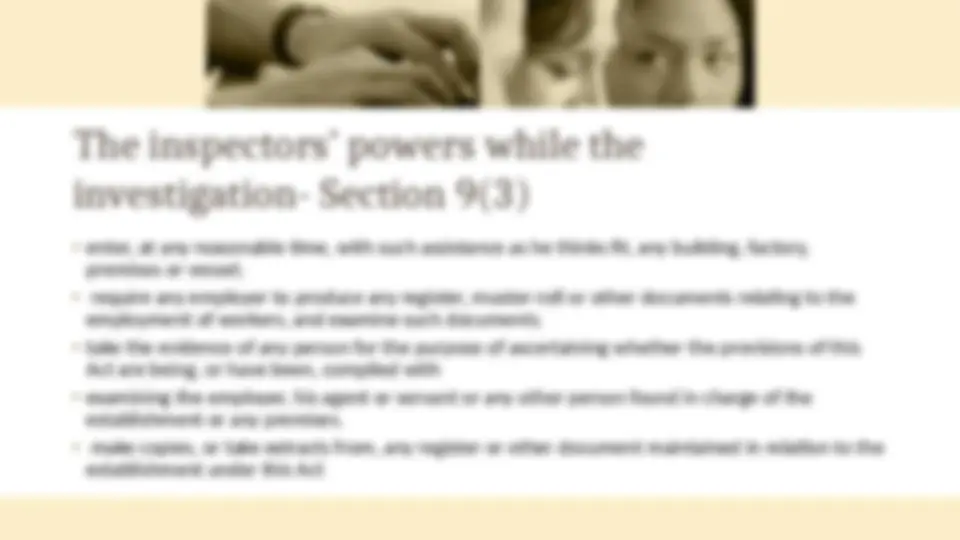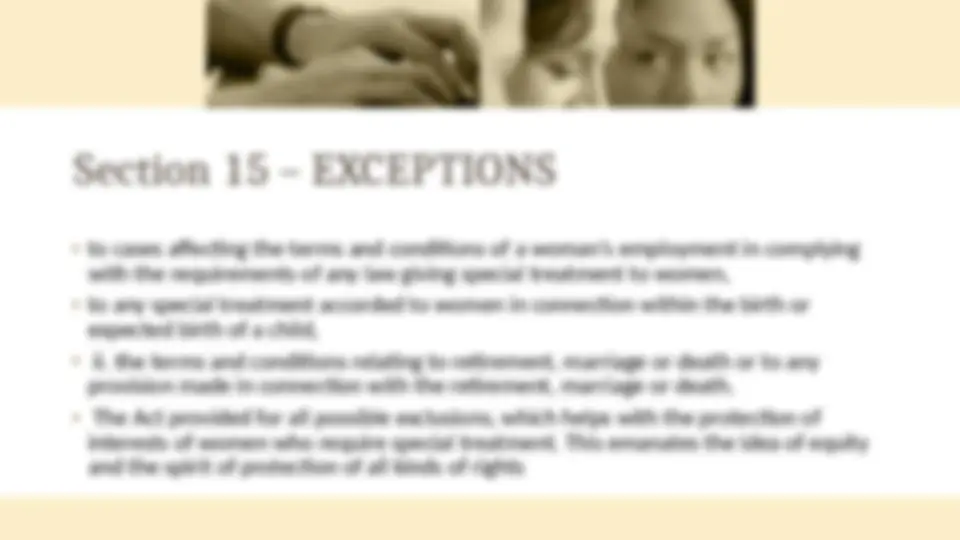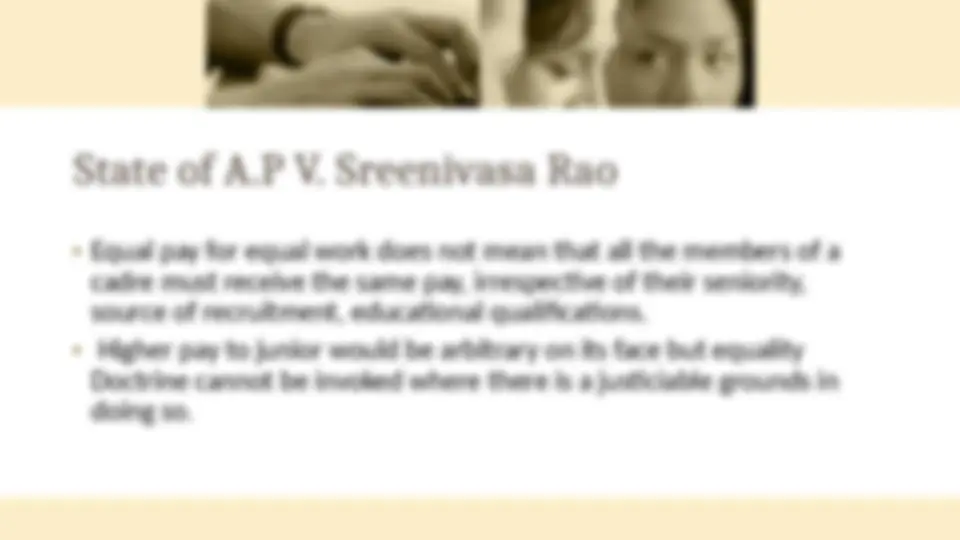Download Ppt on The Equal Remuneration Act, 1976 and more Slides Labour Law in PDF only on Docsity!
The Equal
Remuneration
Act, 1976
Pragadi
INTRODUCTION
- (^) An Act to provide for the payment of equal remuneration to men and women workers and for the prevention of discrimination, on the ground of sex, against women in the matter of employment and for matters connected therewith or incidental thereto.
- (^) ENACTMENT DATE : 1976-02-
- (^) 18 SECTIONS
- (^) 3 CHAPTERS
CONSTITUTIONAL PROVISIONS
- (^) the abstract doctrine of equal pay for equal work cannot be read in Article 14
- (^) Article 15
- (^) Article 16 shall be discriminated on grounds only of religion, race, caste, sex, descent, place of birth, residence or any of them, be ineligible for, or discriminated against in respect of, any employment or office under the State.
- (^) Article 39 (d) envisages that the state shall, in particular, direct its policy towards securing that there is equal pay for equal work for both men and women.
- (^) Article 42
- (^) Article 51(A)(e)
Kishori Mohanlal Bakshi v. Union of India
- (^) The principle of Equal Pay for Equal work was first introduced in the year 1962
- (^) The Supreme court rejected this plea of equal work and equal pay.
Randhir Singh V. Union of India,
- (^) The supreme court held that the principle of equal pay for equal work though not a fundamental right is certainly a constitutional goal and therefore capable of enforcement through constitutional remedies under article 32 of the Indian Constitution.
- (^) The word socialist in the Preamble must at least mean equal pay for equal work.
OBJECTIVES
- (^) Equal remuneration act, 1976 provides for the payment of equal remuneration to men and women workers and
- (^) For prevention of discrimination, on the basis of sex, against women in the matter of employment and for matters connected therewith or incidental thereto
- (^) Set up advisory committees to promote the welfare of women
- (^) The main objective of the act is gender equality, but by deciding different cases Supreme Court has extended its applicability generally to Article 14 and 16 of Indian Constitution
APPLICABLITY
- (^) It extends to the whole of India.
- (^) The provisions of the Act shall be inapplicable when special treatment is given to women under any law or when special treatment is accorded to women in connection with the birth of a child.
SECTION 2- DEFINITIONS
Section (g) “remuneration”
- (^) the basic wage or salary, and any additional emoluments whatsoever payable, either in cash or in kind,
- (^) to a person employed in respect of employment or work done in such employment,
- (^) if the terms of the contract of employment, express or implied, were fulfilled
Section (h) “same work or work of a similar nature”
- (^) the skill, effort and responsibility required are the same,
- (^) when performed under similar working conditions,
- (^) by a man or a woman and the differences,
- (^) if any, between the skill, effort and responsibility required of a man
- (^) those required of a woman are not of practical importance in relation to the terms and conditions of employment
Section 5- No discrimination to be made while recruiting men and women workers
- (^) On and from the commencement of this Act, no employer shall, while making recruitment for the same work or work of a similar nature make any discrimination against women except where the employment of women in such work is prohibited or restricted by or under any law for the time being in force
- (^) Provided that the provisions of this section shall not affect any priority or reservation for scheduled castes or scheduled tribes, ex-servicemen, retrenched employees of any other class or category of persons in the matter of recruitment to the posts in an establishment or employment.
Section 6- Advisory Committee
- (^) the appropriate Government shall constitute one or more Advisory Committees to advise it with regard to the extend to which women may be employed in such establishments or employments as the Central Government may, by notification, specify in this behalf
- (^) The government is taking all possible steps in making a change in the remuneration policies of the employers in India
- (^) The advisory committee must consist of at least 10 people, which will be nominated by the appropriate government.
- (^) The Advisory Committee shall regulate its own procedure.
- (^) Women must consist of one-half of this committee because that will help in formulation of policies with the help of people who are the real stakeholders
Section 7- Authorities for Hearing and Deciding Claims and Complaints
- (^) Power of appropriate Government to appoint authorities for hearing and deciding claims and complaints- Section 7 of the Act states that the complaints and claims regarding the infringement of this Act shall be addressed to the appointed officer for the purpose of hearing and deciding—
- (^) 1. complaints with regard to the contravention of any provision of this Act;
- (^) 2. claims arising out of non-payment of wages at equal rates to men and women workers for the same work or work of a similar nature.
- (^) define the local limits within which each such authority shall exercise its jurisdiction.
Appeal
- (^) The situation where any of the parties is dissatisfied with the decision given by the authority.
- (^) The aggrieved party must prefer an appeal before such an authority which is specified by the appropriate government, within thirty days from the date of the order.
- (^) Section 33C of the Industrial Disputes Act shall apply for the recovery of duties due from an employer arising out of the decision of an authority appointed under this section.

